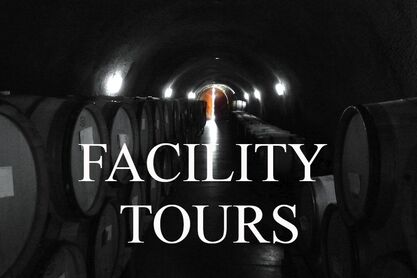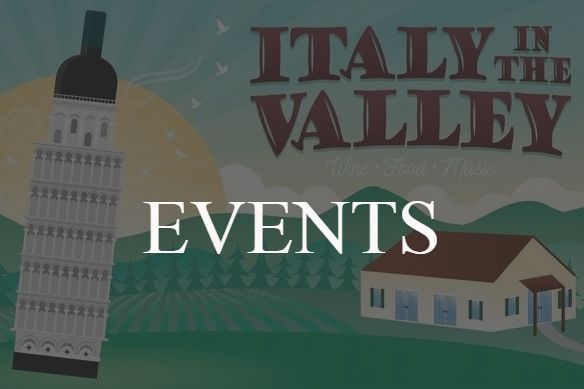Biodynamics is a spiritual-ethical-ecological approach to agriculture
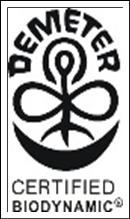
Biodynamic farmers strive to create a diversified, balanced ecosystem that generates health and fertility within the farm itself. Preparations made from fermented manure, minerals and herbs are used to restore and harmonize the vital life forces of the farm, enhance the nutrition, quality and flavor of the food being raised. Biodynamic practitioners recognize and strive to work in cooperation with the subtle influences of the wider cosmos on soil, plant and animal health. While they do not need the bees for pollination in the vineyard because grape plants are self pollinated from wind and gravity, they need them on the rest of their land. There are lots of blooming plants and trees where the bees collect their pollen and the end product is not only a healthy environment but a tasty jar full of golden honey, the end product of our Bees hard work.
A Biodynamic Glossary
A Biodynamic Glossary
- Demeter-certified vineyard: A site that has received official recognition from Demeter International, the leading third-party biodynamic certification organization in the world.
- LIVE-certified sustainable: LIVE (Low Input Viticulture and Enology) provides third-party recognition to wineries in Oregon and Washington that protect watershed resources and use sustainable farming and winemaking practices.
- Phylloxera: A tiny insect responsible for the devastation of European-varietal vines worldwide. While historically a European calamity, the louse is now making its way to the Pacific Northwest.
- Own-rooted: Grapevines planted without being grafted onto phylloxera-resitant rootstock. Many wine lovers believe own-rooted vineyards better express terroir and varietal characteristics.
'We finally did it!' says Montinore Estates Rudy Marchesi. 'After 3 years of hard work, we are so proud to announce that we earned our Demeter Biodynamic® Certification this August! We are now one of 7 certified Biodynamic vineyards in Oregon, and are most definitely one of the largest as our entire 230 acres are certified.
Oregon's Beloved Biodynamic Mentor
We are often asked what exactly Biodynamic farming is. Biodynamic farming is based the teachings of Rudolf Steine, and can be quite difficult to explain as, so let me start by describing organic farming.
As most of us know, organic farming does not allow for the use of synthetic fertilizers, herbicides or pesticides, instead we use naturally occurring substances for disease control.
Biodynamic farming utilizes organic practices but takes a further step by using certain amendments and sprays that are also naturally occurring; many of them can be made with flowers and minerals taken directly from the estate. These sprays work with the ecosystem in our vineyard to help promote health in the vines, soil, bugs and animals that live here. By encouraging health in the vines and ecosystem, the vines are stronger and less sensitive to disease or other issues that may arise. In the end we have healthy, happy vines producing high quality fruit which helps us make our tasty wine.' More from Montinore (redefining the concept)
2010 Pinot Noir • Swan Song • Willamette Valley • $45
Sourced from a dying vineyard—where yields from old plantings are shrinking every year due to the scourge of phylloxera—this wine is a bittersweet testament to Montinore’s Demeter-certified biodynamic estate. An honest representation of the quirky 2010 vintage, the Swan Song offers notes of orange, Campari, and bright red fruit.
Oregon's Beloved Biodynamic Mentor
We are often asked what exactly Biodynamic farming is. Biodynamic farming is based the teachings of Rudolf Steine, and can be quite difficult to explain as, so let me start by describing organic farming.
As most of us know, organic farming does not allow for the use of synthetic fertilizers, herbicides or pesticides, instead we use naturally occurring substances for disease control.
Biodynamic farming utilizes organic practices but takes a further step by using certain amendments and sprays that are also naturally occurring; many of them can be made with flowers and minerals taken directly from the estate. These sprays work with the ecosystem in our vineyard to help promote health in the vines, soil, bugs and animals that live here. By encouraging health in the vines and ecosystem, the vines are stronger and less sensitive to disease or other issues that may arise. In the end we have healthy, happy vines producing high quality fruit which helps us make our tasty wine.' More from Montinore (redefining the concept)
2010 Pinot Noir • Swan Song • Willamette Valley • $45
Sourced from a dying vineyard—where yields from old plantings are shrinking every year due to the scourge of phylloxera—this wine is a bittersweet testament to Montinore’s Demeter-certified biodynamic estate. An honest representation of the quirky 2010 vintage, the Swan Song offers notes of orange, Campari, and bright red fruit.
|
Tony and Michelle Soter of Soter Vineyards say,
"We employ a number of techniques that support the health of our [Bio-dynamic] vineyard from a holistic perspective. We use cover crops between our vine rows to improve soil health. Where our vines need a boost, we might plant mixes of legumes to mine nutrients from the soil and make them available to the vines. Where we have excess vigor, we will use grasses to temper growth. We also rely on animals and insects to assist with various pest problems. As grapes reach their peak ripeness in the vineyard, starlings and other birds are drawn to the sweet fruit and can cause excessive damage to clusters. We work with a falconer during harvest to provide natural bird abatement. We also rely on ladybugs, predatory wasps, and other beneficial bugs to combat vineyard pests like aphids and leafhoppers." More |
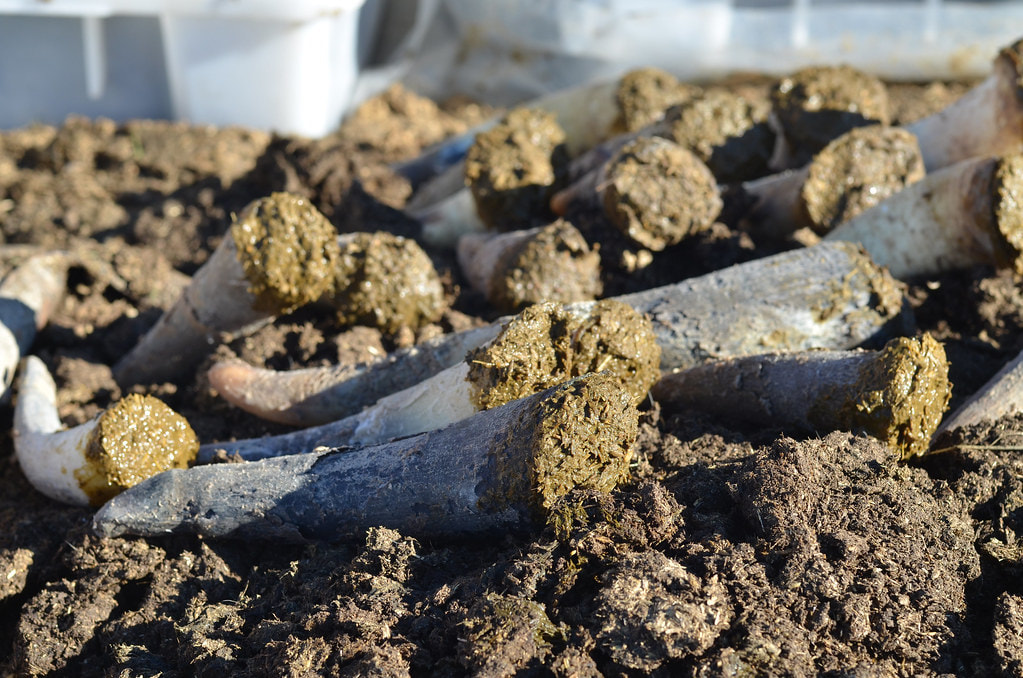
Biodynamic winemakers fill horns with fresh manure to make Preparation 500, used in sprays and compost to stimulate soil microbiology.. More
"Production of horn manure (BD preparation 500) at Granton Vineyard" by stefano lubiana wines is licensed under CC BY-NC-ND 2.0 |
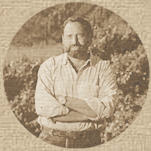
Biodynamic legend Doug Tunnell, the owner and winemaker of Brick House, describes Bio-dynamic: He says he wakes up every morning surrounded by 34,000 grape vines. “You begin to look at the world by what happens to those vines. They are subject to rhythms, to patterns, to waves, if you will, that are very obvious to me---the phases of the moon, the passage of the seasons, the positions of the sun in the sky. He continues, “When I see the moon at nine in the morning in the western sky on a clear day, I can tell you that we need to pick grapes: it’s harvest time now. Because that’s where the moon is, year in, year out, at about the time that we pick the grapes. The same with the sun: the sun is low in the sky. It’s just a matter of observing and thinking about what we see today. It’s October 14th. Look at the shadows. The light is very different now. The vines are going to sleep. This is not light that is going to stimulate photosynthesis. This is light that is going to allow them to go into hibernation. This is just a way of thinking…That’s what bio-dynamics has allowed me to do”
His vineyard is not only organically certified, it is farmed according to biodynamic principles, which he says, is similar to a homeopathic approach, or in the “old French song that says that the best fertilizer in the vineyard is the footprint of the owner. As Tunnell does not irrigate, Brick House wines are pure expressions of each vintage.
Pinot Noir • Cuvée du Tonnelier • Ribbon Ridge
Doug Tunnell crafts this layered wine from own-rooted Pommard vines planted in 1990. Expressive, lively, and packed with red fruit, spice, and earthy perfume, this offering is balanced by a welcomed backbone of funk characteristic of the maturing Ribbon Ridge estate.
His vineyard is not only organically certified, it is farmed according to biodynamic principles, which he says, is similar to a homeopathic approach, or in the “old French song that says that the best fertilizer in the vineyard is the footprint of the owner. As Tunnell does not irrigate, Brick House wines are pure expressions of each vintage.
Pinot Noir • Cuvée du Tonnelier • Ribbon Ridge
Doug Tunnell crafts this layered wine from own-rooted Pommard vines planted in 1990. Expressive, lively, and packed with red fruit, spice, and earthy perfume, this offering is balanced by a welcomed backbone of funk characteristic of the maturing Ribbon Ridge estate.
Josh Bergstrom, of Bergstrom Winery, says, 'Biodynamic farming dates back to the 1920's as the original organic movement marrying Rudolph Steiner's Anthroposophic ideals and astrological influences on plants, soils, water and stone. Biodynamic farming ensures unique and pure terroirs which are alive with energy, feeling and not poisoned with the herbicides, insecticides, pesticides or fungicides which are routinely abused around the world. We use natural elemental spray solutions to combat disease, indigenous predatory insects and botanical teas to control pests and organic compost to build and sustain a healthy, balanced soil structure...What we do and when is attuned to moon phases so we know when the sap is falling or rising in the vine. This maximizes the plant's health and retention of energy for growth and to ward off disease.'
Their Philosophy. they do not believe in processing a wine, the more natural a wine is bottled, the better it will be when consumed.
Their Philosophy. they do not believe in processing a wine, the more natural a wine is bottled, the better it will be when consumed.
The untamed look of Maysara Vineyards is evidence of their commitment to a discipline called biodynamics. In modern times, biodynamics shares a foundation with the organic movement. However, while organics shares the biological agriculture background and methods, it stops short of the dynamic processes, or life force of the farm. For within a fully sustainable farm, there is a circle of life processes which are distinct yet completely intertwined with the whole. Biodynamics recognizes and responds to the life force of the living farm, considering the farm a living organism.
As a living organism, a Biodynamic farm should be self-sustaining. Therefore, the goal of any Biodynamic farm is to reduce the amount of outside inputs, and eventually eliminate the need all together. This is especially important with wine, as the maintenance of a unique sense of place is essential in maintaining the vineyard’s sense of terroir.
In Biodynamic farming, each farm has its own individuality and character. The farmer is part of that equation, leading the farm in the right direction. Integration of livestock, creating new pastures, thinning of the forest, introducing insectory plants to enhance the well-being and food supply for beneficial insects, introducing wild life and recycling nutrients are all important parts of our task.
Pinot Noir • 3 Degrees • McMinnville
Sourced exclusively from the Demeter-certified biodynamic Momtazi vineyard in the McMinnville foothills, this wine offers stunning flavors at an unbeatable price. Gobs of bright red fruit, spice, and bitter cherry meet a streak of acidity for a food-friendly bottle you can stock up on.
As a living organism, a Biodynamic farm should be self-sustaining. Therefore, the goal of any Biodynamic farm is to reduce the amount of outside inputs, and eventually eliminate the need all together. This is especially important with wine, as the maintenance of a unique sense of place is essential in maintaining the vineyard’s sense of terroir.
In Biodynamic farming, each farm has its own individuality and character. The farmer is part of that equation, leading the farm in the right direction. Integration of livestock, creating new pastures, thinning of the forest, introducing insectory plants to enhance the well-being and food supply for beneficial insects, introducing wild life and recycling nutrients are all important parts of our task.
Pinot Noir • 3 Degrees • McMinnville
Sourced exclusively from the Demeter-certified biodynamic Momtazi vineyard in the McMinnville foothills, this wine offers stunning flavors at an unbeatable price. Gobs of bright red fruit, spice, and bitter cherry meet a streak of acidity for a food-friendly bottle you can stock up on.

VINEYARD MANAGEMENT
Our philosophy is shared by many in Oregon-"To respect the land, treat it well for generations to come." Lachini Vineyards are hand-farmed using sustainable agriculture and organic practices. Sustainable viticulture not only protects and renews soil fertility; but minimizes adverse impacts on natural biological cycles and controls as well as minimizing impacts on health, safety, wildlife, water quality and the environment.
We have employed Biodynamic and Organic practices since 2008 and are currently seeking certification. Through sustainable agriculture and organic farming principles we are at work within the vineyard rows on a daily basis from pruning in the winter months, budbreak in early spring, verasion in summer and harvest in early fall. Every farming method we practice, create or implement, whether employing organic soil amendments to hoeing by hand, is meant to increase the vitality and potential of each grapevine. We limit crop yields to extremely low levels (approximately 2 tons/acre), and through several stages of leaf, canopy and soil management we are able to harvest extremely ripe fruit, which gives us more consistently complex, ageworthy and classic Pinot Noirs.
While our Estate vineyard is not yet Demeter certified, please see below to view some of the Biodynamic practices we engage.
Our philosophy is shared by many in Oregon-"To respect the land, treat it well for generations to come." Lachini Vineyards are hand-farmed using sustainable agriculture and organic practices. Sustainable viticulture not only protects and renews soil fertility; but minimizes adverse impacts on natural biological cycles and controls as well as minimizing impacts on health, safety, wildlife, water quality and the environment.
We have employed Biodynamic and Organic practices since 2008 and are currently seeking certification. Through sustainable agriculture and organic farming principles we are at work within the vineyard rows on a daily basis from pruning in the winter months, budbreak in early spring, verasion in summer and harvest in early fall. Every farming method we practice, create or implement, whether employing organic soil amendments to hoeing by hand, is meant to increase the vitality and potential of each grapevine. We limit crop yields to extremely low levels (approximately 2 tons/acre), and through several stages of leaf, canopy and soil management we are able to harvest extremely ripe fruit, which gives us more consistently complex, ageworthy and classic Pinot Noirs.
While our Estate vineyard is not yet Demeter certified, please see below to view some of the Biodynamic practices we engage.
- We align our farming activities with the Stella Natura Biodynamic Planting calendar.
- We harvest/source, store and integrate all the biodynamic preps along with brewing & applying our own teas.
- We bury cowhorns with fresh manure and then dig them up to create our own prep 500.
- We believe that native, fallow areas designated in our vineyard help with biodiversity.
- We've planted lavender, olive trees, and retained/nurished native plants.
- We source seven-year-old organic compost locally.
- We sow a diversified cover crop annually and retain native grasses in certain rows/blocks
- A local beekeeper, Ryan Bringal, maintains up to ten hives on our property
- We partner with a local organic dairy for compost & manure for natural balancing of our soils & sheep herder to lessen the impact of machinery
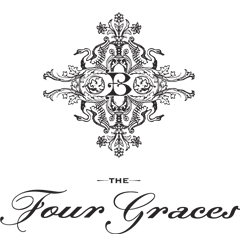
Biodynamic and Sustainable Farming
The Four Graces has undertaken a groundbreaking experiment: a direct comparison of two similar but distinct farming practices that resulted in the creation of two remarkable wines in the process.
We've long been fascinated and inspired by the principles of sustainable growing – so we devised a way to test their results. In 2005 we chose two 20-acre sections in our Doe Ridge Estate, side by side and with nearly identical characteristics of soil, light, altitude and other environmental aspects. Then we farm them, starting with identical stocks, using two different sets of practices: The North Blocks are farmed following sustainable practices, and the South Blocks are farmed following biodynamic practices.
In 2008 we selected four barrels sourced from each section, and aged them in French Oak for 18 months. The results of our grand experiment were finally available, although only 900 bottles of each wine were produced.
And how did the wines turn out? Well, they're quite distinct from each other. Everything about these wines is the same, except for the farming practices – and that turns out to make a significant difference. We're allowing those who taste them tell us their perceptions of the wines and their differences. What are your impressions? Write and let us now at [email protected] or post on http://facebook.com/thefourgraces.
We don't know of anyone implementing a similar comparison on this scale, and we're proud to be at the forefront of exploring different environmentally positive farming methods. As we continue our fascinating experiment, we're eager to track the differences in these two wines, vintage by vintage. - See more at: https://www.thefourgraces.com/Vineyards/Sustainable-Farming#sthash.rst7jAGV.dpuf
A Quick Explanation of Biodynamic Farming
Biodynamics was developed by Rudolf Steiner, an Austrian scientist-philosopher, in 1924. Biodynamics treats the vineyard as a living organism, using a combination of organic preparations and the earth's natural cycles to grow balanced, healthy vines.
Growing grapes following biodynamic farming principles means working to bring the grapevine and the soil into balance. This is done through environmentally sound farming, using natural preparations and timing work processes with the celestial rhythms of the earth.
While organic farming also uses compost for fertilization, biodynamic farming uses much smaller quantities of natural preparations to enliven the soil. These minute amounts of natural preparations introduce microbial life and nutrients into the soil, and that life reproduces throughout the vineyard.
Here Are Some of the Elements of Our Biodynamic Farming Practices
The Four Graces has undertaken a groundbreaking experiment: a direct comparison of two similar but distinct farming practices that resulted in the creation of two remarkable wines in the process.
We've long been fascinated and inspired by the principles of sustainable growing – so we devised a way to test their results. In 2005 we chose two 20-acre sections in our Doe Ridge Estate, side by side and with nearly identical characteristics of soil, light, altitude and other environmental aspects. Then we farm them, starting with identical stocks, using two different sets of practices: The North Blocks are farmed following sustainable practices, and the South Blocks are farmed following biodynamic practices.
In 2008 we selected four barrels sourced from each section, and aged them in French Oak for 18 months. The results of our grand experiment were finally available, although only 900 bottles of each wine were produced.
And how did the wines turn out? Well, they're quite distinct from each other. Everything about these wines is the same, except for the farming practices – and that turns out to make a significant difference. We're allowing those who taste them tell us their perceptions of the wines and their differences. What are your impressions? Write and let us now at [email protected] or post on http://facebook.com/thefourgraces.
We don't know of anyone implementing a similar comparison on this scale, and we're proud to be at the forefront of exploring different environmentally positive farming methods. As we continue our fascinating experiment, we're eager to track the differences in these two wines, vintage by vintage. - See more at: https://www.thefourgraces.com/Vineyards/Sustainable-Farming#sthash.rst7jAGV.dpuf
A Quick Explanation of Biodynamic Farming
Biodynamics was developed by Rudolf Steiner, an Austrian scientist-philosopher, in 1924. Biodynamics treats the vineyard as a living organism, using a combination of organic preparations and the earth's natural cycles to grow balanced, healthy vines.
Growing grapes following biodynamic farming principles means working to bring the grapevine and the soil into balance. This is done through environmentally sound farming, using natural preparations and timing work processes with the celestial rhythms of the earth.
While organic farming also uses compost for fertilization, biodynamic farming uses much smaller quantities of natural preparations to enliven the soil. These minute amounts of natural preparations introduce microbial life and nutrients into the soil, and that life reproduces throughout the vineyard.
Here Are Some of the Elements of Our Biodynamic Farming Practices
- Prepare and apply nine biodynamic preparations made from herbs, mineral substances and animal manures to revitalize the soils and stimulate root growth
- Refer to the astronomical calendar when planning activities such as pruning, cultivating, harvesting and spraying the preparations
- Make our own compost from local organic cow manure and straw which is available to irrigate the vineyard. The Doe Ridge Vineyard is destined to produce excellent fruit.
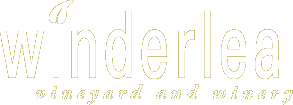
Winderlea VineyardPinot Noir • Legacy • Dundee Hills Drawing from the LIVE-certified Winderlea estate vineyard’s 30-year-old own-rooted vines, this wine combines the freshness of the vintage with well-integrated tannins and mature, nuanced flavors of tobacco, cocoa, and malt for a surprisingly structured sip with a finish that lasts and lasts.
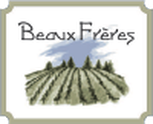
Beaux Frères
Pinot Noir • Beau Frères Vineyard • Ribbon Ridge
This elegant, deep ruby pour from winemaker Michael Etzel hails from the estate vineyard’s own-rooted, biodynamically farmed Pommard and Wädenswil grape clones. Complex, dark, and full of beautiful red fruit and floral aromas, this wine proves the power behind low yields and intentional farming.
Pinot Noir • Beau Frères Vineyard • Ribbon Ridge
This elegant, deep ruby pour from winemaker Michael Etzel hails from the estate vineyard’s own-rooted, biodynamically farmed Pommard and Wädenswil grape clones. Complex, dark, and full of beautiful red fruit and floral aromas, this wine proves the power behind low yields and intentional farming.

While waiting for their own vines to mature, the Montalieus purchased fruit from various vineyards, and named their new label Soléna. A combination of two names that signify the sun and the moon, after their daughter.
It also can signify their winemaking technique: Biodynamic Winemaking, where everything is done in harmony with nature; the sun, the moon, the stars...
Laurent Montalieu is one of Willamette’s leading winemakers specializing in biodynamic viticulture. Soléna Grande Cuvée Pinot Noir 2012 is his Willamette Valley blend; he was also pouring a 2011 Domaine Danielle Laurent pinot noir from the Yamhill-Carlton district that was racy and fresh, and a gorgeous 2013 pinot gris. ABV: 13.7 percent.
It also can signify their winemaking technique: Biodynamic Winemaking, where everything is done in harmony with nature; the sun, the moon, the stars...
Laurent Montalieu is one of Willamette’s leading winemakers specializing in biodynamic viticulture. Soléna Grande Cuvée Pinot Noir 2012 is his Willamette Valley blend; he was also pouring a 2011 Domaine Danielle Laurent pinot noir from the Yamhill-Carlton district that was racy and fresh, and a gorgeous 2013 pinot gris. ABV: 13.7 percent.








